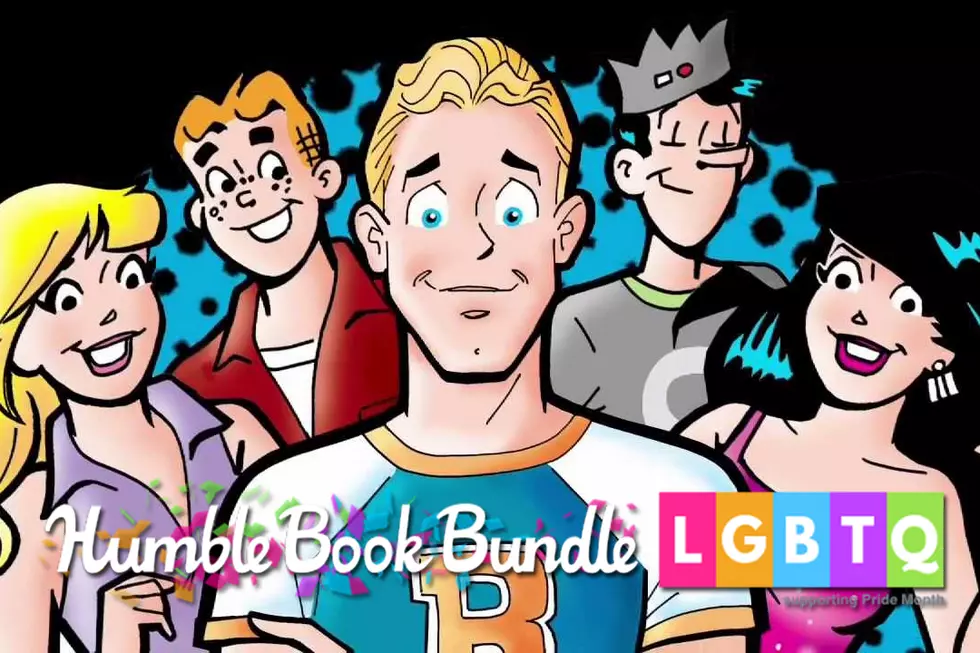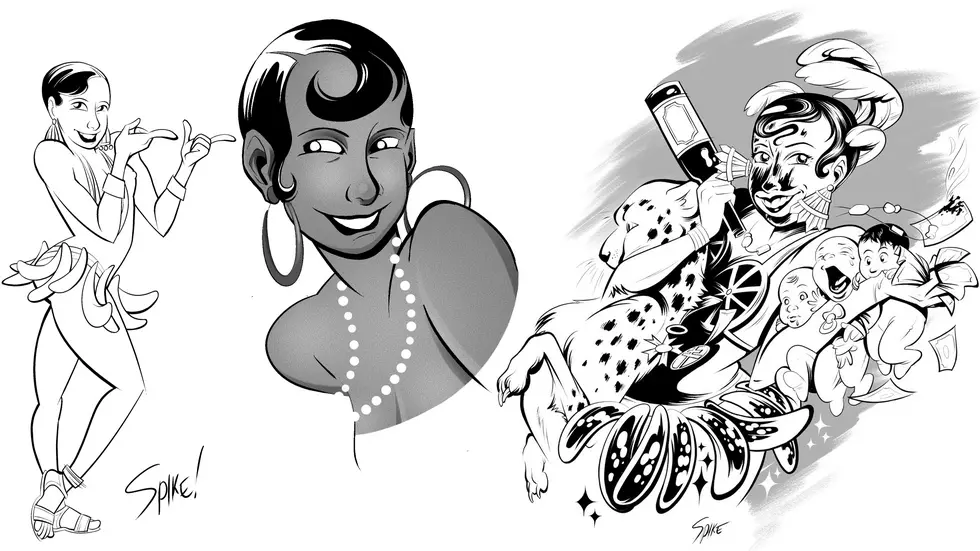
‘Poorcraft’ Is Everything Your Parents Never Taught You About Frugal Living

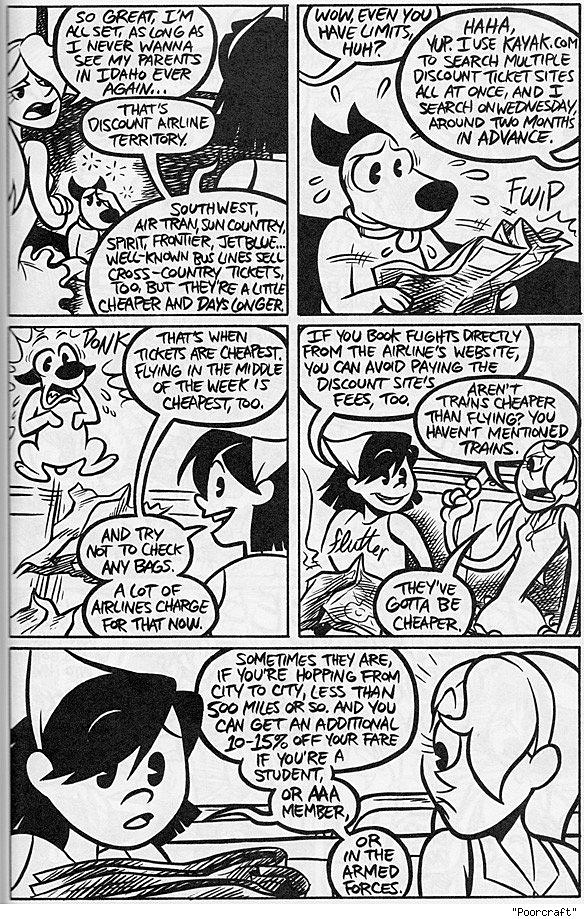
Spike Trotman, best known for her alternate history webcomic Templar, Arizona, was a fairly early adapter of Kickstarter, crowdfunding Poorcraft more than twice over in 2009. When she launched the campaign, she explained that she was frustrated by people telling her that they would love to become full-time artists if only they could afford it. Well, she figured, she was a full-time cartoonist, one who spent a lot of time traveling to conventions, and she was living a rather fulfilling, if frugal, existence. So why not pour all the tight budget tricks she had picked up over the years into a book, one that could help artists adjust their lifestyles to fit their desired career, and help keep younger folks from digging themselves into unnecessary debt? So she got to writing and tapped fellow cartoonist Diana Nock (The Intrepid Girlbot) to draw the whole thing.
Poorcraft introduces us to two very different young women. Penny is an exuberant acolyte of the pinched nickel (with a dog named Nickel to match), a gal who makes her own furniture and waxes poetic about the research she did in finding her used van. Penny's neighbor Mil, on the other hand, is a devil's advocate of the deal, a lost soul wandering the desert of unsecured debt and beyond-her-means living. Bit by bit, Penny teaches Mil the ways of the frugalista, from how to make a budget, cooking your own food, and finding the right dwelling and car for you (including figuring out if you actually need a car) to purchasing health insurance and fixing your credit.
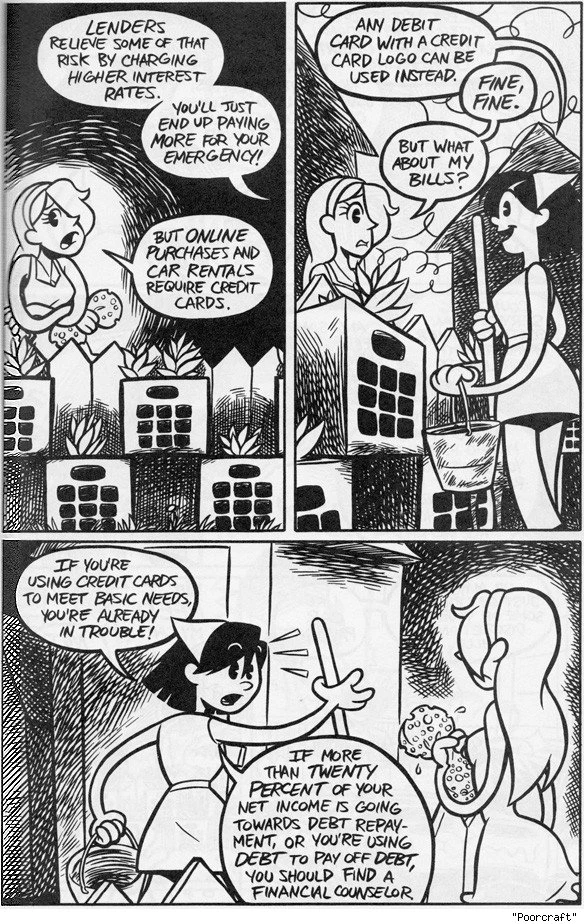
Tough love is a difficult tone to strike. You want to create a sense that these changes are necessary (for some folks, urgent) while not driving them away with lecturing. To that end, the Penny/Mil dynamic works well. Penny is exuberant, someone who holds to her frugal lifestyle not only because it allows her to live on a tight budget, but because she feels it adds quality and satisfaction to her life. Mil is dubious. She likes living alone. She likes her car. She likes her trendy clothes. But, while she's not fully won over by Penny's boundless energy and can-do attitude, she does gradually realize that she can make some simple changes in her life that will pay off. She downsizes from a single home to a room in a much nicer, much more conveniently located house. She's wowed by the price-dropping powers of grocery store coupons. She realizes that she can still buy new clothes out of season and grab designer goods from eBay. She eventually understands that credit counseling and a few lifestyle adjustments will make her happier and healthier in the long run.
Nock's art does a lot to reinforce that friendly tone. I'm routinely impressed by her cartooning powers in The Intrepid Girlbot, a comic that manages to convey a great deal of emotional information without dialogue or changing the expression on her titular gynoid's face. In Poorcraft, Nock takes her cues from classic animation, giving Mil and Penny bendy arms and expressive faces. While the ladies discuss the finer points of cross-country travel and HMOs, Nickel is up to all sorts of cartoon dog antics in the background. It's an educational book, but Trotman and Nock never forget the fun aspect of comics. It's amazing how well an anthropomorphized pooch balancing hamburgers on his nose helps the penny pinching medicine go down.
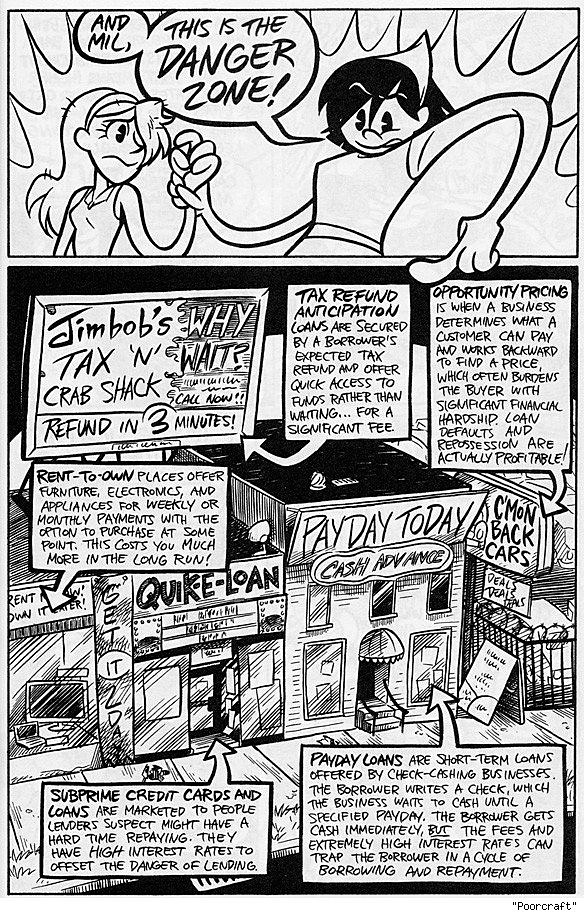
There are some pieces of advice in Poorcraft that warrant further discussion. For example, Trotman encourages readers to throw out their credit cards. It's understandable advice, but there are responsible ways to save money and build credit with cards. (Trotman's main point, that you shouldn't be carrying debt on credit cards, is sound, though.) And depending on where you live, your mileage may vary with regards to travel and insurance advice (you lucky Canadians, you). But the book is full of the straightforward advice my mother taught me (how to season a skillet, how to mend clothes) and a few things she never did (how to make your own cleaning products, how to sharpen a knife). It also warns the financially unbalanced off the so-called "poverty industry" of predatory payday loans and high-interest credit cards. Plus, Trotman includes plenty of websites and other resources that can provide additional information that doesn't fit in this slim volume.
It's also quite serious about the changes many people will need to make to find financial security. Yes, you may need roommates. You might have to trade in your car for a bike and a bus pass. Push aside your pride and whip out those coupons. But it's also remarkably non-judgmental. Poorcraft acknowledges that people make mistakes with their money, and those mistakes don't automatically render someone stupid or irresponsible. Poorcraft doesn't care is you took out an ill-advised car loan or missed a few credit card payments. It just wants to give you the tools to make better financial decisions in the future.

Even if you're debt-free with perfect credit, Poorcraft represents a different sort of freedom. If you can liberate yourself from overspending and owing interest, you can free up yourself--and your money--for other things. You could try your hand at self-employment, take pay cut to pursue your dream job, save to buy a house or pursue that degree.
More From ComicsAlliance
![Things Go Bump In The Night In ‘My Monster Boyfriend’ [Fantasy Week]](http://townsquare.media/site/622/files/2016/10/mymonsterboyfriend-cover-feat.jpg?w=980&q=75)



